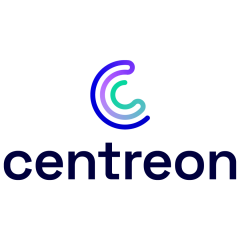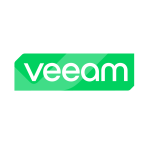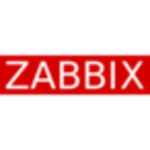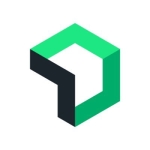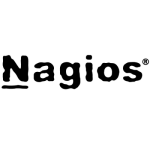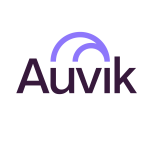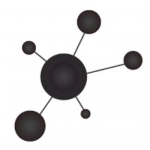What is our primary use case?
We use it for monitoring infrastructure and custom applications. We customize the monitoring and dashboards. We have a NOC here, where we monitor our clients' environments 24/7. It is integrated with our ticketing system and SMS and email for communication. We also have a Knowledge Base system integrated with Centreon.
We use it on-premises for ourselves and we provide SaaS with it for our customers. We have more than 20 installations of Centreon.
How has it helped my organization?
Centreon makes it easier and quicker to get the information needed to analyze. It uses different colors when there is a problem that passes a threshold. It gives you information and you just have to analyze the machines on the report. It's easier to find the ones we need to comment on to our clients, so they can look more deeply into them.
The solution also increases the accuracy of our monitoring because the plugins enable us to monitor things that we wouldn't normally monitor. There are built-in plugins that pick points that we wouldn't usually monitor if we had to create that monitoring by ourselves. When monitoring something, we might not consider one of those points, because it's not a main point. But it is being monitored. And when we troubleshoot, sometimes we use one of those monitoring options that gives us more information. That makes us more accurate. Our accuracy could always increase, of course, but there is no limit on that.
With the automated configuration for monitoring items using plugins, we optimize our time. And with integration, if we have something happening, we can automatically open a ticket and send communication through SMS or email. Both are very good options. During the day it probably saves us 50 percent of our time, and during the night it's even more.
We usually do a mapping of our client's business and present that on a dashboard. We don't generally use the reports for that because the dashboards are more real-time. That way, the client knows in real-time what's happening. That helps align IT operations with business objectives a lot. Monitoring and presenting in that way is the whole point.
In terms of mean time to resolution, when we introduced Centreon into operations that didn't have it, it reduced the time to resolution because we located the source of problems quicker. The amount of time really depends on the stuff involved. There are a lot of links that take many hours. The time that is really reduced is the time for detection of the problem. The total resolution time, which contains the detection time, is reduced because of the detection phase. But the resolution phase is basically the same. The overall time varies a lot. It's hard to say how much it reduces the MTTR. But it can be very significant in cases where detection is difficult.
What is most valuable?
We use almost everything in the product. What is most important are the monitoring, alerting, and the dashboards. If we don't have basic monitoring, we don't have a NOC. It's the basis of the functionality of the system.
The dashboards are valuable because they ease troubleshooting and viewing. It becomes easier to locate the source of a problem. We can use BAM for that as well, but we only have it in one of the installations, one that has the Centreon Business edition; the others are using the free version. The dashboards make it easier to communicate with our clients. They don't want to see the alert console, they want to see a beautiful dashboard representing their network and their business and to watch it in case something is wrong in their environment.
We use the reports, but not that much, although the reporting is very good. We use it for creating books, monthly reports for our clients. We use the reports for analysis and to say, "These ones require growing," or "This is too big. You can lower the memory and save some money on your cloud." That is a monthly service we provide to our clients.
Centreon is also very versatile. There are a lot of built-in plugins that ease the work. But if we need to connect to some device that doesn't have a plugin ready, we can customize a plugin and create monitoring for the device ourselves. It's quite easy. When there is a plugin, it speeds the implementation of new devices. If there isn't one, it takes a little longer, but we are not unable to monitor the device. We are always able to monitor.
What needs improvement?
I would like to see more plugins. That is something it needs.
There is also room for improvement through dynamic thresholds, or self-discover thresholds.
I would also like to see a discovery feature that could map the whole network environment and automatically suggest things.
Finally, NetFlow would be helpful. We have a lot of clients that ask for NetFlow.
For how long have I used the solution?
I've been using Centreon for more than 10 years.
What do I think about the stability of the solution?
It's very stable. We have had Centreon here for more than 10 years, and we have had about three problems in that time.
What do I think about the scalability of the solution?
It's very scalable. We have installations with more than 10,000 pieces of equipment. We use the free version and it works well. You just add more pollers and segregate the database.
How are customer service and technical support?
Their technical support is very good. They answer quickly without any problems. It's a good service.
Which solution did I use previously and why did I switch?
We used to use Nagios. I also used the IBM Tivoli solution, OpenView from HPE, and WhatsUp Gold. I have used many solutions.
We switched to Centreon for a number of reasons. The IBM and HPE solutions were too expensive. We then went to a free solution, Nagios. But the Nagios interface is not as complete or as good as Centreon's interface. So we switched to Centreon's free version first and moved to using the EMS solution about a year ago, to get the benefits of plugins and dashboards.
How was the initial setup?
The setup is very easy. Centreon itself is an ISO that you boot. You answer some questions and it's up and running. In terms of configuration, you can put in the IP address of the host and attach the plugins and they are ready for monitoring. It's very easy. If it had a more complete discovery feature, it would be even better, but it's already very easy.
The time it takes for the initial deployment depends on how many hosts, and how deeply, you want to monitor. But in less than a week, you can have good monitoring set up for a small to medium sized company. The longer part for us is the interview with the business, the analysts and the system analysts, to understand their particular applications and services and the impact of those on their business, to create business dashboards and business monitoring.
What was our ROI?
We have had a quick return on investment because we have a lot of hosts to monitor. For new implementations it speeds up the process of deploying. That is labor-intensive work, and it reduces the amount of that work. That helps create a return on the investment quickly, by not spending on as many man-hours as we would have.
In terms of replacing other tools, it hasn't really reduced our cost, but we have reduced costs with Centreon in another way. We need fewer people to monitor more stuff. Prior to Centreon we used free tools so the cost of the tool was not the issue; it was the performance of the people working with the tools.
What's my experience with pricing, setup cost, and licensing?
If you need basic monitoring without dashboards, just monitoring, the plugins are very useful and really cheap. If you want a more complete solution with dashboards and reporting, the EMS solution is great and it is not that much more expensive. It's a good value. Really good.
What other advice do I have?
We use multiple views on Centreon. We don't use a single view because it's too big. We could have a single view. But in terms of alerts, when we create dashboards that provide the best point of view for the whole infrastructure, we usually segment them to see things in more detail. If we put the whole infrastructure in a single dashboard, it would be too macro, it would not be detailed enough.
We have a lot of screens for monitoring so we create a lot of dashboards and put them on the screens. Those dashboards are not super-detailed, but they are also not a single, macro view, so that we can know where a problem is. We usually create enough dashboards to avoid having to drill down. We have drill-downs, of course, but as a NOC, we prefer to have the most information we can have on-screen. For that we have a lot of dashboards open simultaneously. All together, the way we have set things up, it provides a single view, but with a lot of dashboards, not a single one. That's how we prefer it.
In our company, for monitoring, we have 12 people using Centreon. For support, there are about 20. As for the number of users who only use our Centreon dashboards, I really don't know because our clients have a lot of people. We have three guys who implement Centreon, customize the monitoring, create the dashboards; all of them do all these functions. They maintain the solution to make sure it's working well.
I would rate Centreon a nine out of 10. It needs those features I mentioned earlier. But, for the price, it's really a 10.
Disclosure: PeerSpot contacted the reviewer to collect the review and to validate authenticity. The reviewer was referred by the vendor, but the review is not subject to editing or approval by the vendor. The reviewer's company has a business relationship with this vendor other than being a customer: Partner.

